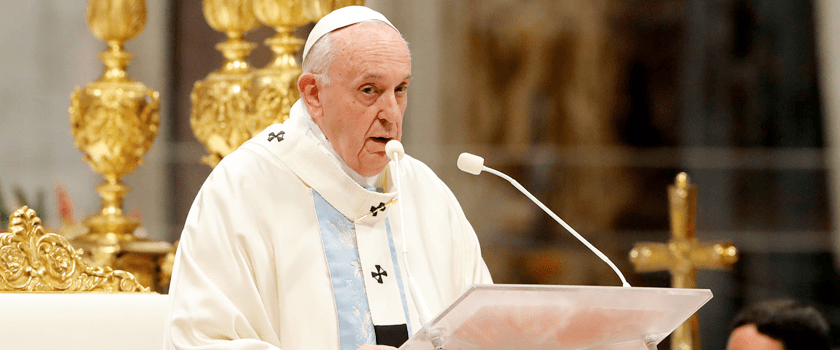Pope Francis, born Jorge Mario Bergoglio in Buenos Aires, Argentina, is the first pope from the Southern Hemisphere. His linguistic capabilities are not only a reflection of his diverse upbringing but also a testament to the universality of the Catholic Church. By examining the languages spoken by Pope Francis, we gain insight into his background, cultural influences, and the theological perspective that shapes his papacy.
The primary language of Pope Francis is Spanish. Growing up in Argentina within an Italian immigrant family, Spanish became his native tongue. The language carries deep cultural significance for him, rooted in the rich tapestry of Latin American history and identity. Spanish is the language of pastoral care for many Catholics, particularly in the Americas, where a substantial proportion of the Church’s adherents reside. By conversing primarily in Spanish, Pope Francis connects with millions of faithful, making his messages more accessible and resonant.
However, Pope Francis is not limited to Spanish alone. He is also proficient in Italian, which is perhaps the most significant language within the Vatican. Given the geographical and administrative center of the Catholic Church is located in Italy, Italian serves as the lingua franca of papal communications. Francis’ adeptness with Italian enables him to engage effectively with the Vatican’s officials, diplomats, and congregants alike. His fluency in Italian accentuates his role in the intricate politics of the Holy See, while highlighting the historical importance of Italy in ecclesiastical matters.
Beyond Spanish and Italian, Pope Francis exhibits a commendable command of English. In an increasingly globalized world, English functions as a bridge language, facilitating dialogue and understanding amongst diverse populations. His ability to speak English allows him to address a broader audience, especially during international visits. This skill was particularly evident when he addressed the United States Congress in 2015, emphasizing key moral issues such as immigration and climate change in a language understood by many. His English speeches often convey warmth, compassion, and an urgent call to action, resonating with listeners across cultural divides.
French and Portuguese are additional languages in which Pope Francis has demonstrated proficiency. French, often seen as the language of diplomacy, complements his outreach efforts, especially in Francophone regions. His knowledge of Portuguese strategically enhances his connection with Brazil, the nation with the largest Catholic population in the world. These languages encapsulate not just communication but also a broader mission of globalization—showcasing the Church’s efforts to embrace linguistic diversity and cultural differences.
Latin, the historical language of the Catholic Church, is also within his purview, although it is less frequently employed in his day-to-day interactions. Latin holds a sacred status within Catholic liturgy and theology, and Pope Francis’ occasional references to it underline the profound connection between the Church’s ancient traditions and contemporary practices. Latin serves as a reminder of the Church’s historical roots and spiritual heritage, a theme that permeates much of his pontifical communication.
Pope Francis’ multilingual capabilities enhance his pastoral outreach, allowing him to tailor his messages according to the cultural and linguistic contexts of his audiences. In a world increasingly fragmented by political and social tensions, the pope’s linguistic diversity serves to cultivate a spirit of ecumenism—a call for unity among various Christian denominations, as well as interfaith dialogue. His messages, which transcend language barriers, embody the essence of the Christian mission: to spread the Gospel and promote love, understanding, and compassion among all people.
His use of multiple languages also reflects a respect for diverse perspectives and experiences. By addressing various linguistic communities, Pope Francis acknowledges the significance of cultural identity and the role it plays in understanding and practicing faith. He often combines languages even in a single address, demonstrating his intention to embrace the eclectic nature of the Church and its followers.
As a figure who traverses global divides, Pope Francis exemplifies the idea of a contemporary shepherd, one who understands that the flock he leads is comprised of myriad voices, tongues, and backgrounds. His linguistic dexterity fosters a sense of shared humanity among diverse populations, affirming that faith can serve as a common ground even amidst the cacophony of differing worldviews.
In conclusion, the linguistic repertoire of Pope Francis serves as a symbol of his commitment to inclusivity, empathy, and pastoral care in a world that often seems polarized and divided. His multilingualism not only enhances his ability to communicate effectively but also reinforces the universal message of the Gospel of love, hope, and redemption. As the Church continues to navigate the complexities of modern society, Pope Francis’ dedication to multilingual outreach will remain a cornerstone of his pontificate, a beacon guiding the faithful, inspiring dialogue, and fostering understanding across cultures and languages.



